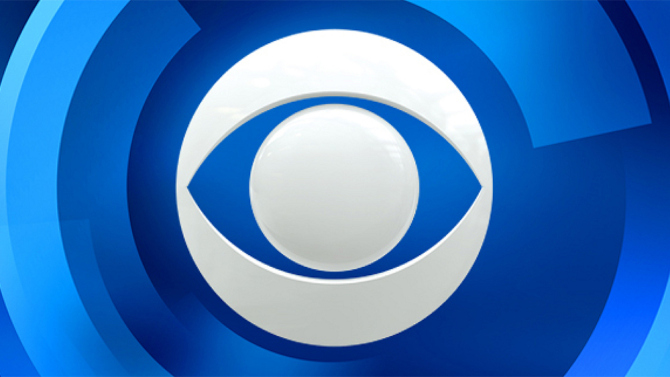
Political To Drive Double-Digit Gains At CBS Local

Anybody seeking info on the harassment allegations facing CEO Les Moonves or the squabble with principal owner National Amusement during the CBS earnings call Thursday evening was disappointed. On the advice of counsel, Moonves and CFO Joe Ianniello steered clear of those topics.
What the company did report among the generally postive results was a modest performance for its television station group. CBS Local enjoyed an $8 million, 2% gain in revenue to $420 million, driven by retransmission consent revenue. It was accompanied by a flat performance in operating income.
And things are looking up for the rest of the year, Ianniello said. “In advertising, the story this year is political. We’re already beginning to see huge ramp ups along the way.”
Moonves was more specific. “So far this year our political revenue is nearly double what it was at this point during the last mid-term election in 2014.”
Ianniello later cautioned that that didn’t mean political will necessarily double for the year. “Back in 2014, over 50% of the revenue came in the fourth quarter so it’s pretty concentrated, but I will tell you that it’s going to be up significantly.”
Ianniello predicted political will drive a double-digit increase in local revenue during the third quarter with most of the money coming in in October just ahead of election day.
Moonves looked a little further ahead and predicted that advertising from the combination of CBS’s strong network programming lineup and the 2019 Super Bowl will lead to strong 1Q 2019 results.
Another factor that will boost advertising income is the legalization of sports betting. KYW Philadelphia is already bringing in cash, said Moonves, and WCBS New York will also benefit in the near future.
CBS has no idea how much cash might someday be generated by this category, but Moonves called the upside “unbelievable.”
He said the betting should drive ratings on CBS sports programming, but that there are not yet any plans for “shoulder programming” to capitalize further on the expected betting boon.
Beyond broadcasting, Moonves continued to preach the virtue of diversified revenue streams that have reduced its reliance on the relatively volatile advertising market with steady and predictable income from retransmission consent, reverse compensation and licensing fees.
Moonves noted that advertising now accounts for only 38% of total company income.
He also repeated his claim, made at the company’s conference call in February, that its total retransmission consent/reverse compensation income will surpass the original 2020 goal of $2 billion and hit $2.5 billion.
Moonves said he based the bullish projection on retransmission consent deals CBS has struck with three large MVPDs — Verizon, Dish and Charter — over the past year and a half.
Ianniello explained how CBS arrived at its $2.5 billion figure. He said the CBS O&Os will make about $3 per month from the 30 million pay TV subs they reach, for a total of about $1.1 billion; meanwhile, 60 million subs worth of reverse comp from the affiliates at about $2 per sub will total about $1.4 billion.
Ianniello added that contracts for 75% of CBS subscriber base are up for renewal over the next two years, 30% will be renegotiated in 2019, followed by another 45% in 2020.
At this point in television/MVPD relations, retrans negotiations are stable, according to Ianniello. He said at the beginning the “proof of concept was the hardest” but at this point the marketplace knows the pricing.
Moonves said he was glad to see the FCC’s restoration of the UHF discount, which allow groups to expand their reach beyond the 39% of TV homes. “Obviously we have more headroom to go buy some things, and we’ve always liked the station business. We like it in the larger markets, markets where we have football games, etc., etc., so we’re always looking and we like the change in the regulation.”
Moonves was also happy with the progress of digital platforms CBS All Access and Showtime OTT.
The services were looking for 8 million subs by 2020, but are ahead of schedule and are expected to hit that target next year. Moonves went even further, predicting it will double to 16 million by 2022.
The company is also pleased with progress on four streaming services, CBSN, the just announced CBSN Local, Sports HQ and — coming soon — ET Live. The ultimate plan is to bundle all six.
































Comments (2)
Peter Van West says:
August 3, 2018 at 1:21 pm
It’s great that every CBS O&O is getting their own CBSN Local and it’s about time. The concerns that I have are about two CBS O&Os: KTVT 11 and WWJ 62. It’s great news KTVT is getting it’s own CBSN but I feel that to make to most of it, KTVT may need to switch affiliations with WFAA in which channel 8 would become CBS and 11 ABC. In Detroit’s case: WWJ would need to switch channels upgrading to 20 and sending current occupant WMYD down to 62, If the move is not made, WWJ must cancel its weather forecasts and possibly starting next year will not broadcast 24/7 anymore (that means NO infomercials).
Peter Van West says:
August 3, 2018 at 1:30 pm
One more thing, do not attempt to increase your newscasts because of political ad reasons and allowing more weather hype meaning more people forecasting on-air.